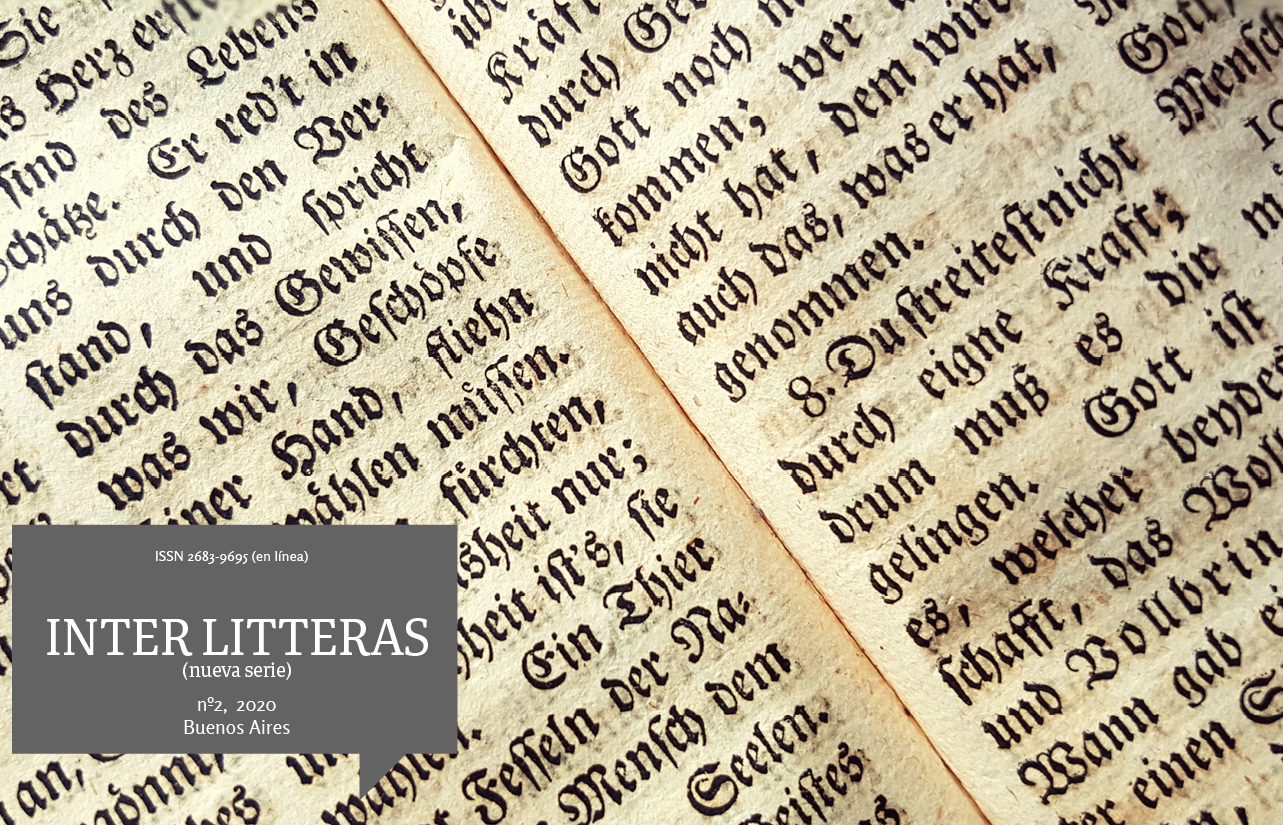The Apprenticeship of the Reader: The Bildungsroman of the “Age of Goethe”
Keywords:
Bildungsroman, Bildung, reader, meta-reflection
Abstract
Based on a re-evaluation of the first elucidations of Morgenstern on the term Bildungsroman, the article proposes to analyze the sub-genre, no longer from the content of the texts or the path of the hero, but considering the effect that the novels seek to arouse in the reader. Bildungsroman is characterized as a type of novel that promotes the cultivation of the public and even the emergence of a new type of reader, capable of deciphering the meaning of complex texts. To test this hypothesis, the role of the reader implicit in the novels of Goethe, Hölderlin, Novalis, Jean Paul, among others, is studied. Likewise, the article reflects on the concept of Bildung to account for the paradox in which the novels of formation of the Goethe era, written to educate the reader, but destined, by their level of demand, to a select and reduced public, incur. However, it rescues the validity of the Bildungsroman at present and postulates that contemporary readers, accustomed to avant-garde literature, are better able to evaluate the meta-fictional reflections on the function of literature that the sub-genre insinuates.Downloads
Download data is not yet available.
Published
2020-11-30
How to Cite
Mahoney, D. F. (2020). The Apprenticeship of the Reader: The Bildungsroman of the “Age of Goethe”. Inter Litteras, (2), 27-42. https://doi.org/10.34096/interlitteras.n2.9727
Issue
Section
Dossier










